The Trouble with Women
Cast & Crew
Sidney Lanfield
Ray Milland
Teresa Wright
Brian Donlevy
Rose Hobart
Charles Smith
Film Details
Technical Specs

Synopsis
The newspapers of a Midwest college town announce the arrival of psychology professor Gilbert Sedley to the school. Gilbert has just published a book based on his experiments in hypnosis that supposedly prove that women have an unconscious desire to be subjugated. Joe McBride, city editor of the Globe , sends reporter Kate Farrell, with whom he is in love, to interview Gilbert. After visiting a night court trial in which a man uses Gilbert's theories to defend the spanking of his wife, Kate writes an article under the pseudonym "Martha Motherly" and accuses Gilbert of advocating wife-beating. Gilbert sues the Globe for slander, and unaware that Kate is "Martha Motherly," begins to fall in love with her. Kate enrolls in Gilbert's class and antagonizes him, hoping he will hit her in front of Globe photographer Herman Lupin. Gilbert, meanwhile, takes meticulous notes on his "animalistic" chemical reactions to Kate's womanhood, and, using word association, compares her attractiveness to that of his sternly intellectual fiancée, Dean of Women Agnes Meeler. Acting on Joe's orders, Kate and Herman lure Gilbert to a burlesque show and push him onto a stage full of fan dancers as they perform a song about a male "wolf." When the girls pummel Gilbert with powdersticks, he hits them back, and Herman snaps an incriminating snapshot. Although Gilbert offers to drop the lawsuit if Joe refrains from printing the picture, Joe sells it to a rival newspaper. Gilbert, meanwhile, finally gives in to his urges to kiss Kate, but Agnes spoils their romance by telling him that Kate is "Martha Motherly." Furious at Joe for selling the picture, Kate quits the newspaper and prepares to return to her home town of St. Paul, Minnesota. Upon learning that Gilbert plans to resign from the university, Kate appeals to the board of regents and confesses her part in the scandal. Joe also quits the newspaper so that Kate will marry him, but she refuses. After a colleague tells Gilbert that Kate came to his defense, he has her subpoenaed for his libel suit trial to keep her from leaving town. In court, Gilbert uses hypnosis to get Kate to agree to marry him but she revives and admits that it was not she but the judge whom he hypnotized. Seeing that Kate and Gilbert are in love, Joe returns to the Globe and writes a story about how a Svengali courted his girl in court.

Director
Sidney Lanfield
Cast

Ray Milland

Teresa Wright

Brian Donlevy

Rose Hobart
Charles Smith
Lewis Russell

Iris Adrian
Frank Faylen

Rhys Williams
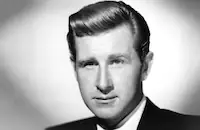
Lloyd Bridges
Norma Varden

James Millican
Matt Mchugh
Jimmie Smith

Minor Watson
Norman Rainey

Nestor Paiva
Mary Field
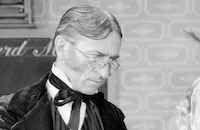
Olin Howlin

Will Wright
Conrad Binyon
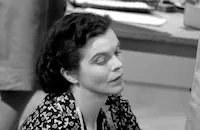
Dorothy Adams
Jayne Hazard
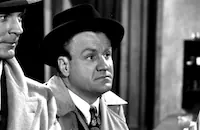
Lyle Latell
Teala Loring

Byron Foulger
William Meader
Albert Ruiz
Al M. Hill
Clark Eggleston
Eddie Carnegie
Byron Poindexter
Stan Johnson
Charles Mayon
Jerry James
Jimmy Hawkins
Virginia Doffy
Frank Darien
Freddie Chapman
Kay Deslys
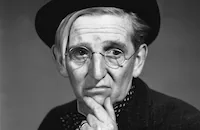
Jimmy Conlin
William Haade

John Hamilton
John Harmon
Eula Morgan
Colleen O'neill

Kristine Miller
Eddie Hall
John Jennings
Eddie Borden

Chester Conklin
Lee "lasses" White
Robert Middlemass
George Carleton

Mary Hatcher

Joseph Crehan

William B. Davidson
William Newell

Fern Emmett
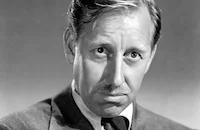
Frank Ferguson
Tom Chatterton
George Sorel
Edward Gargan
Esther Howard
Charles L. Marsh
Crew
Richard Bransten
Sam Comer
John N. Cope
Billy Daniels
Robert Emmett Dolan
Hans Dreier
Farciot Edouart
Miriam Franklin
Loyal Griggs
Edith Head
Earl Hedrick
Gordon Jennings
Wallace Kelley
Sam Ledner
Paul Lerpae
Harold Lewis
Lionel Lindon
Al Mann
Ruth Mckenney
George Mckinnon
Richard Mcwhorter
Ben Raleigh
William Rand
Dr. Benjamin Sacks
William Shea
Arthur Sheekman
Harry Tugend
Bernie Wayne
Wally Westmore
Philip Wisdom
Victor Young

Film Details
Technical Specs

Articles
Teresa Wright (1918-2005)
She was born Muriel Teresa Wright in New York City on October 27, 1918. She showed a keen interest in acting in grade school, and by the time she was 19, she made her Broadway debut in Thorton Wilder's Our Town (1938); the following year she scored a hit as Mary, the weeping ingénue in Life with Father (1939). The word was out that New York had a superb young acting talent on hand, and Samuel Goldwyn soon brought her to Hollywood for William Wyler's adaptation of Lillian Hellman's The Little Foxes (1941). She scored an Oscar® nomination for her film debut as Regina Giddens' (Bette Davis), honorable daughter, Alexandria.
She maintained her amazing momentum by scoring two Oscar® nominations the following year for her next two films: as Carol Miniver in Wyler's Mrs. Miniver (Best Supporting Actress Category), and as Lou Gehrig's (Gary Cooper) faithful wife Ellie in Pride of the Yankees (Best Actress Category), and won the Oscar for Miniver. Yet for most fans of Wright's work, her finest hour remains her perfectly modulated performance as young Charlie in Alfred Hitchcock's masterpiece, Shadow of a Doubt (1943). Wright's performance as the self-effacing, impressionable young niece who gradually realizes that her beloved uncle (Joseph Cotton) may have murdered several widows is effective since Wright's air of observation, subtly turns from idol gazing, to a watchful air of caution as the facts slowly being to unravel. 60 years on, fans of Hitchcock still acclaim Wright's performance as an integral part of the film's classic status.
She proved her talents in comedy with the delightful Casanova Brown (1944), but then saw her schedule slow down due to domesticity. After she married screenwriter Niven Busch in 1942, she gave birth to son, Niven Jr., in 1944, and took two years off to look after her family. She soon returned to film with another Wyler project, the Oscar®-winning, post war drama, The Best Years of Our Lives (1946), playing Fredric March's level-headed daughter, Peggy, she again took some time off after giving birth to her daughter, Mary in 1947. On her second attempt to return to the big screen, Wright found her popularity on the wane. Her wholesome image was in sharp contrast of the tougher, more modern women in post-war Hollywood, and her stubborn refusal to pose for any swimsuit or cheesecake photos to alter her image led to her release from Sam Goldwyn's contract.
As a freelance actress, Wright still found some good roles, notably as a young widow in the thriller scripted by her husband, in The Capture; and as a faithful fiancée trying to help Marlin Brandon deal with his amputation in Stanley Kramer's The Men (both 1950). Yet within a few years, she was playing middle-aged mothers in film like The Actress (1953), and The Track of the Cat (1954), even though she was still in her early '30s. By the mid-50s she found work in live television, where she could apply her stage training, in a number of acclaimed shows: Playhouse 90, General Electric Theater, Four Star Playhouse, and The United States Steel Hour.
She took a break from acting when she married her second husband, the playwright Robert Anderson in 1959, (she had divorced her first husband, Busch, in 1952) and was out of the public eye for several decades, save for an isolated theater appearance. When she did return, it was intermittent, but she was always worth watching. In James Ivory's Roseland (1977), a portrait of the New York dancehall; she was poignant as a talkative widow obsessed with her late husband; and as an enigmatic old actress in Somewhere in Time, she nearly stole the picture from leads, Christopher Reeve and Jayne Seymour. She was still active in the '90s, appearing a few hit shows: Murder, She Wrote, Picket Fences; and a final film role in John Grisham's The Rainmaker (1997). She is survived by her son, Niven; daughter, Mary; and two grandchildren.
by Michael T. Toole

Teresa Wright (1918-2005)
Quotes
Trivia
Notes
This film's working titles were Double Trouble, It Had to Be You and Too Good to Be True, which was also the working title for Cross My Heart, another 1947 Paramount release, starring Betty Hutton and Sonny Tufts. Although copyright publicity material and reviews from May 1947 give a length of approximately 80 min. for this film, Variety's review of a July 1947 New York screening lists the running time as 90 min. The reason for the delay between the end of production and the release of the film has not been determined.














